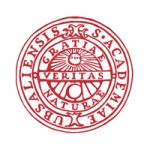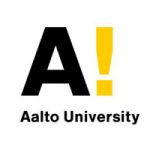项目介绍
Lund University was founded in 1666 and is repeatedly ranked among the world’s top universities. The University has around 47 000 students and more than 8 800 staff based in Lund, Helsingborg and Malmö. We are united in our efforts to understand, explain and improve our world and the human condition.
Lund University welcomes applicants with diverse backgrounds and experiences. We regard gender equality and diversity as a strength and an asset.
Subject description
Physical Chemistry involves research relating to molecular issues. The experimental and theoretical methods used often originate from physics. The emphasis in Physical Chemistry at the Department of Chemistry is on research, both experimental and theoretical, within surface and colloidal chemistry and with a special focus on self-aggregating systems. The systems studied include tensides, polymers and biomolecules.
The current project focuses on Soft Matter, in particular on the study of the flow properties of compressible colloids, microgels, combining scattering techniques with rheology.
Work duties
During the 4 years of this project, the PhD student will develop bio-compatible colloids starting from a well-established model system, pNIPAM-based microgels. At the beginning of the PhD, the candidate will get familiar with the synthesis of simple standard microgels, including ultra-soft and hollow ones. In the rest of the PhD, the focus will move onto the incorporation of proteins (e.g. haemoglobin) and enzymes to implement bio-relevant aspects, such as oxygen transport and release, and efficient adhesion to membranes. The latter will initially be a model lipid bilayer, and then a system closer to real cell-membranes. In addition to the synthetic work, the student will characterise the particles using scattering techniques both in-house (dynamic and static light scattering, small-angle x-ray scattering) and at large-scale facilities (small-angle x-ray scattering and small-angle neutron scattering).
The main aim of this project is to identify synthetic counterparts for bio-materials and investigate how we can implement their properties to achieve, e.g., synthetic platelets and synthetic red blood cells (RBCs). These colloids will be used to generate a prototype of synthetic blood. Furthermore, the general understanding of the role of particle deformation on the flow properties of concentrated solutions, will help the understanding of blood diseases connected to the deformation of RBCs and the changes in the blood rheology (sickle cell disease), or to the changes in the blood viscosity due to an excess of RBCs (polycythemia). In general, we will develop protocols able to identify the basic properties on a nanoscopic-scale that synthetic colloids must have to achieve the aimed flow behavior at macroscopic length-scales.
The total duration of the project will be 4 years. The student will be introduced to the basics of scattering using different probes: light, neutrons and x-rays. Characterisation will be conducted mainly with SAXS using both the in-house instruments and the SAXS machines (coSAXS and ForMAX) at MAX- IV, the synchrotron operative in Lund. Furthermore, during the 4 year we will perform neutron experiments at large scale facilities in Europe and the United States. We also plan rheological measurements, using both a standard in-house rheometer and a capillary high shear rheometer, to determine the viscoelastic properties of the syntheiszed particles in diluted and concentrated suspensions. The student will also spend research stays (up to some months) with Scotti’s collaborators in Germany, the Netherlands, France, and Italy.
The main duties of doctoral students are to devote themselves to their research studies which includes participating in research projects and third cycle courses. The work duties can also include teaching and other departmental duties (no more than 20%).
Admission requirements
A person meets the general admission requirements for third-cycle courses and study programmes if the applicant:
- has been awarded a second-cycle qualification, or
- has satisfied the requirements for courses comprising at least 240 credits of which at least 60 credits were awarded in the second cycle, or
- has acquired substantially equivalent knowledge in some other way in Sweden or abroad.
Specific entry requirements
A minimum of 120 credits are to derive from chemistry courses, of which at least 30 credits from a second-cycle degree project in the chosen specialisation or closely related specialisations.
Alternatively, the applicant could hold a second-cycle education in chemistry, physical chemistry, or engineering with a profile relevant to the research project.
Additional requirements:
- Very good oral and written proficiency in English.
- Good knowledge and skills relevant to the thesis project and the work duties.
- Ability to work independently and to formulate and tackle research problems.
Assessment criteria
Selection for third-cycle studies is based on the student’s potential to profit from such studies. The assessment of potential is made primarily on the basis of academic results from the first and second cycle. Special attention is paid to the following:
- Knowledge and skills relevant to the thesis project and the subject of study.
- An assessment of ability to work independently and to formulate and tackle research problems.
- Written and oral communication skills.
- Other experience relevant to the third-cycle studies, e.g. professional experience.
Other assessment criteria:
- Experience in synthesis (e.g. microgels, diblock-copolymer, handling surfactant and lipids) and chemistry-lab experience.
- Knowledge and/or experience in scattering techniques.
Consideration will also be given to good collaborative skills, drive and independence, and how the applicant, through his or her experience and skills, is deemed to have the abilities necessary for successfully completing the third cycle programme.
Terms of employment
Only those admitted to third cycle studies may be appointed to a doctoral studentship. Doctoral studentships are regulated in the Higher Education Ordinance (1993:100), chapter 5, 1-7 §§.
Instructions on how to apply
Applications shall be written in English and include a cover letter stating the reasons why you are interested in the position and in what way the research project corresponds to your interests and educational background. The application must also contain a CV, degree certificate or equivalent, and other documents you wish to be considered (grade transcripts, contact information for your references, letters of recommendation, etc.).
联系方式
电话: +46 (0)46 222 0000相关项目推荐
KD博士实时收录全球顶尖院校的博士项目,总有一个项目等着你!






